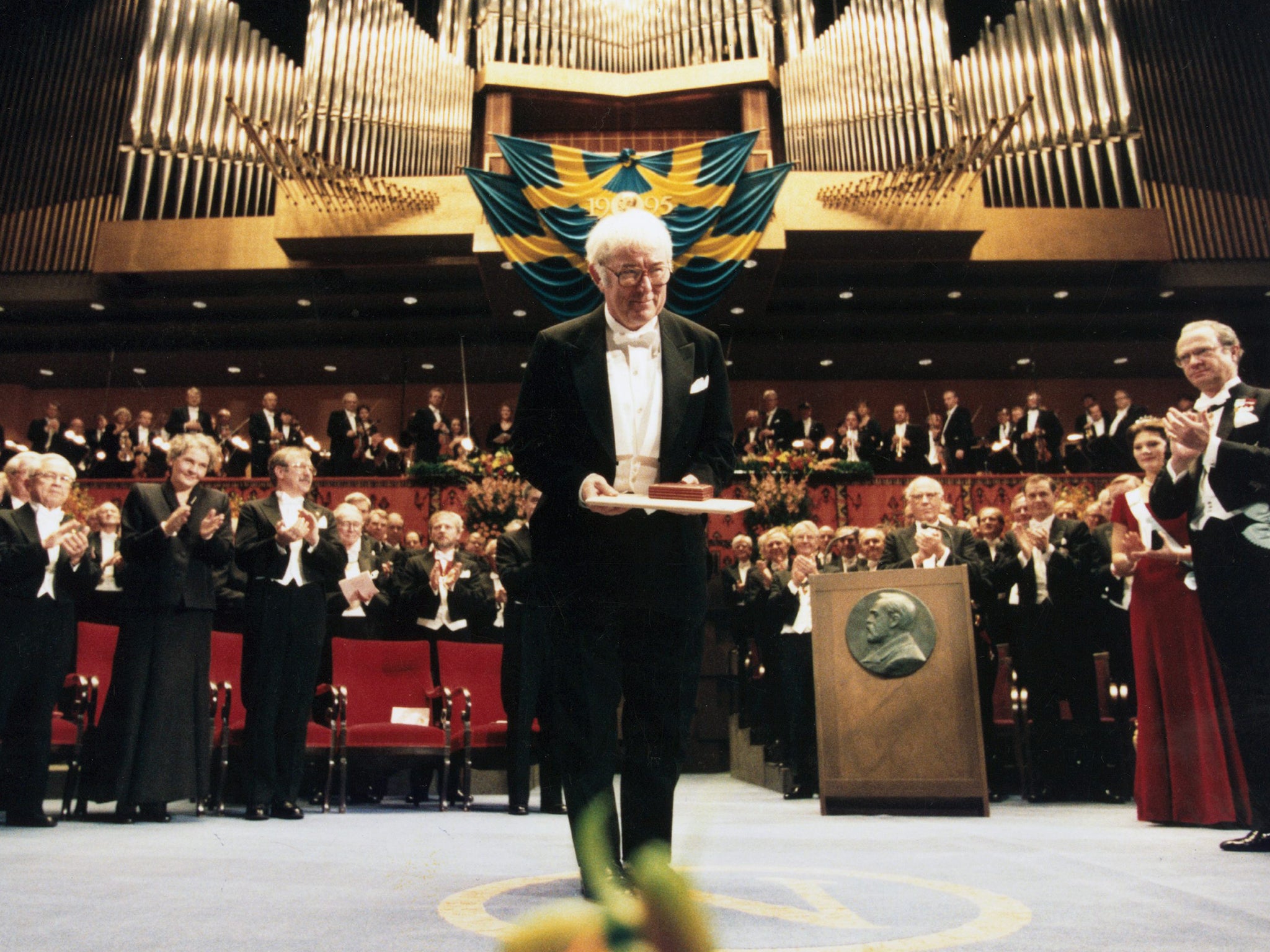Seamus Heaney dead at 74: The Independent's literary editor pays tribute
'No poet of the past century has voiced dilemmas of the individual conscience torn between anguish at injustice and horror of violence better, or more profoundly'


Thanks to the Syrian crisis, acute sympathy for human suffering has this week smashed head-on into a shocked grasp of the potential cost of war. Although he deserved to be remembered for much more, no poet of the past century has voiced dilemmas of the individual conscience torn between anguish at injustice and horror of violence better, or more profoundly, than Seamus Heaney. Nobel Prize-winner and County Derry farmer’s son, arguably the world’s most celebrated poet and yet (I saw this myself) a modest, friendly guy who would come up at a party and say without any affection “I’m Seamus Heaney”. He didn’t so much seek a middle ground as the higher ground. On that ground, poetry could do its proper job: to dig down deeper than rhetoric or politics (the dense Ulster soil and its labours never left his writing) and express the sort of truth that only its art could find.
From the late 1960s onwards, Heaney’s nuanced and subtle - but always heartfelt - take both on the Troubles of his native province and conflict further afield became a constant refrain. It established him as a sort of unofficial mentor for readers, and writers, who distrusted glib “commitment” but equally sought to avoid a stance of snobbish or uncaring neutrality. Heaney cared, desperately, about conflict, its causes and its victims, from early collections such as Door into the Dark and North right up to Human Chain (2010), his final volume. And, oddly but justly, the world at large did finally catch up with his compassionate empathy. During the Northern Irish peace process of the late 1990s, Heaney’s verse served for many participants almost as the sound-track to the search for understanding. Bill Clinton, who became his friend, liked to quote the lines (from Heaney’s first Sophocles translation, The Cure at Troy) that imagine the moment when “the longed-for tidal wave/ Of justice can rise up,/ And hope and history rhyme”.
That rhyme proves as elusive as ever.

Join our commenting forum
Join thought-provoking conversations, follow other Independent readers and see their replies